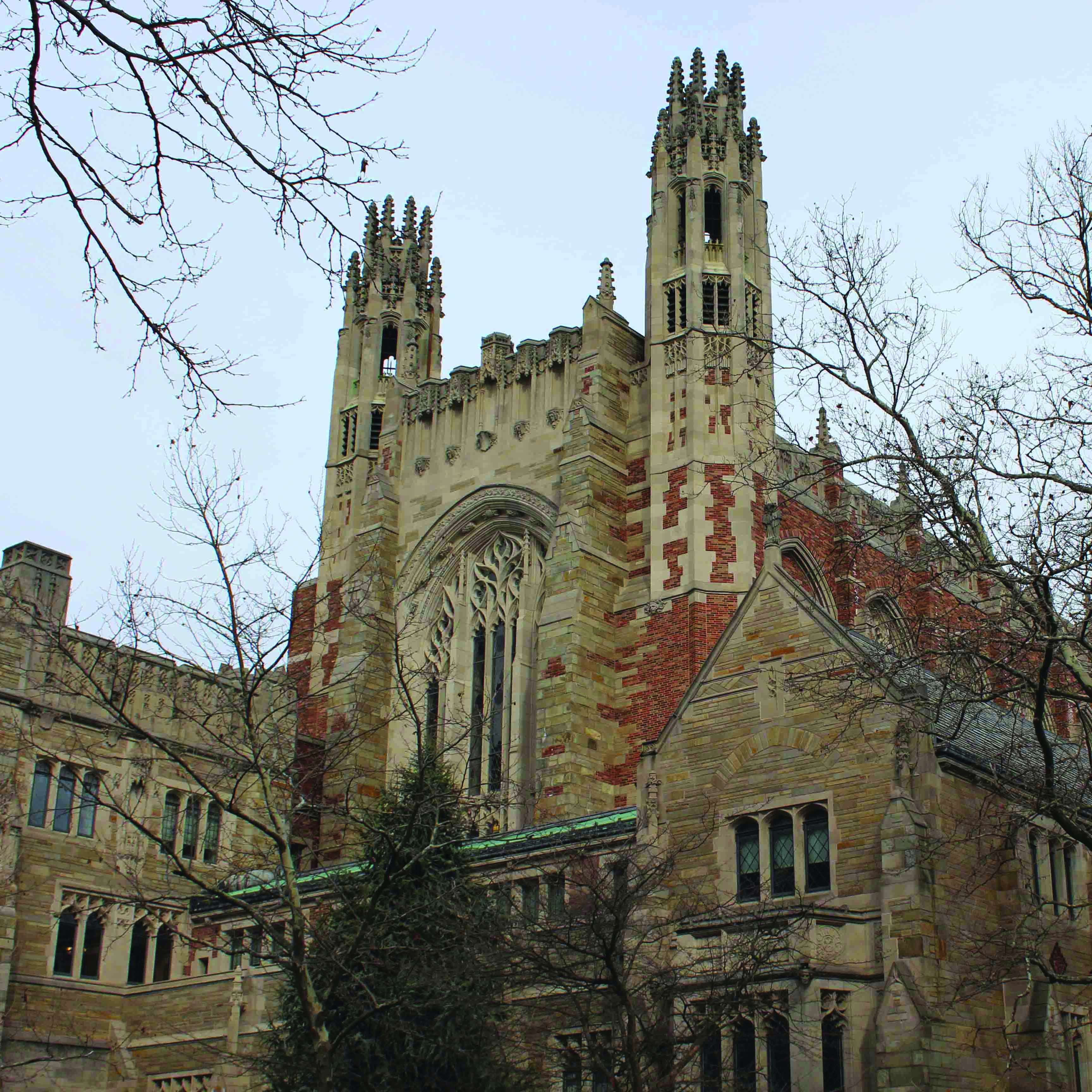Law school dean breaks silence on major protest
Protesters did not violate Yale’s free speech policy, according to Gerken, but behavior was “unacceptable.”

Anvay Tewari
In her first public statement on the issue, Yale Law School Dean Heather Gerken said that some of the 120 students who gathered to protest a conservative speaker two weeks ago engaged in “unacceptable” behavior but did not violate Yale’s free speech policy.
In a Monday morning email to the Law School community, Gerken addressed a March 10 student protest in which more than 100 law students protested the Federalist Society’s decision to bring Kristen Waggoner of the Alliance Defending Freedom to campus. Waggoner and Monica Miller, a lawyer for the progressive American Humanist Association, discussed Waggoner’s recent argument before the Supreme Court in Uzuegbunam v. Preczewski, a civil liberties case regarding a student’s right to proselytize on campus, which Miller supported. But students objected to Waggoner’s presence due to the ADF’s position on LGBTQ rights. In her email, Gerken wrote that the law school permits speech even when the content is inconsistent with the community’s core values.
Gerken wrote that the protesters complied with University free-expression guidelines and left the event after the first warning of Yale’s three-warning protocol. However, Gerken noted that the conduct of some students, which included “rude and insulting behavior,” making excessive noise in the hallways, interfering with concurrent events and ignoring staff, was “unacceptable.” Audio and video of the event shows students occasionally interrupting the law professor moderating the discussion and one student cursing at an attendee and threatening to fight him. When the moderator told students to “grow up,” one replied, “Will those trans kids grow up?”
“Under the University’s free expression policy, student groups have every right to invite speakers to campus, and others have every right to voice opposition,” Gerken wrote in the email. “Our commitment to free speech is clear and unwavering. Because unfettered debate is essential to our mission, we allow people to speak even when their speech is flatly inconsistent with our core values.”
While Gerken wrote that the protest was in line with University policy and did not warrant disciplinary action, the behavior of certain protesters has triggered a “serious discussion” within the Law School about its “policies and norms for the rest of the semester,” Gerken wrote.
Rachel Perler LAW ’22, who protested the event said that the administration has scheduled to meet with protesters this Thursday, and has called it a “norms discussion.”
Gerken wrote that “at a minimum,” some of the protesters violated the norms of Yale Law School.
“I expect far more from our students, and I want to state unequivocally that this cannot happen again,” Gerken wrote.
But Zack Austin LAW ’22, president of the Yale chapter of the Federalist Society, took issue with Gerken’s message as the dean did not punish the protesters. In his view, they did violate Yale’s free speech policy, he wrote to the News.
“If this protest is what compliance with the University’s policies looks like, then there is no meaningful Free Speech policy left at Yale,” Austin said.
He pointed to six specific violations of the report of the Committee on Freedom of Expression at Yale, commonly known as the Woodward Report, which has set the University’s policy on free speech for over four decades. The report states that students may not disrupt an event by obstructing the view of those attempting to watch an event or speaker nor shout down a speaker. Austin asserted that the actions of the protesters violated half a dozen of these policies, specifically that they held up signs that blocked the view of event attendees, that they made noise that interfered with listeners’ ability to hear the speaker and disrupted nearby events and that they blocked access to the hallway outside.
Several protesters, however, doubled down on their opposition to the event, and particularly the University’s decision to call armed police officers to respond.
“We regularly work with student groups for various events and speakers,” Law School spokesperson Debra Kroszner wrote to the News. “When visitors to the Yale campus bring their own security, as in this case, University policy requires the Law School to inform Yale Police. We then work with the police to determine the appropriate level of support for the particular visitor and/or event.”
Henry Robinson LAW ’24 said that they felt that Gerken’s message failed to address one of the students’ primary concerns: the presence of armed police at the protest. Perler echoed Robinson and said that, though she was glad Gerken defended the right to protest, the dean’s statement did not adequately explain why police were present at the protest.
Over four hundred Yale Law School students, more than half of the student body, signed an open letter condemning the administration for the presence of at least four armed Yale police officers at the protest.
“There has been very little communication from the administration on the school’s policy with regards to calling armed police on nonviolent protesters, despite the fact that over half of the student body has signed on to an open letter seeking clarity on that front,” Robinson wrote.
The Yale Law School is located at 127 Wall St.
Update, March 29: This story has been updated with additional sourcing.
Correction, March 29: This article has been updated to accurately reflect statements from the Law School.







